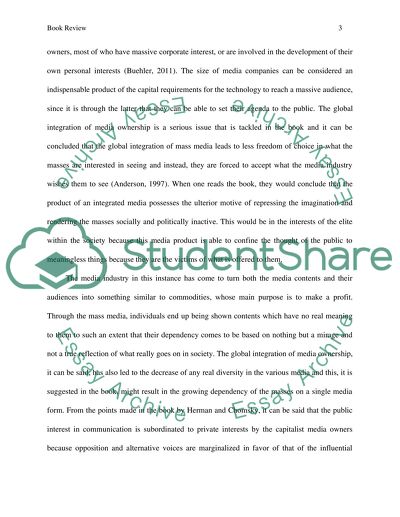Cite this document
(Book Review of Manufacturing Consent The Political Economy of the Mass Media Report/ Example | Topics and Well Written Essays - 2000 words, n.d.)
Book Review of Manufacturing Consent The Political Economy of the Mass Media Report/ Example | Topics and Well Written Essays - 2000 words. https://studentshare.org/politics/1626349-literature-review-of-manufacturing-consent-the-political-economy-of-the-mass-media
Book Review of Manufacturing Consent The Political Economy of the Mass Media Report/ Example | Topics and Well Written Essays - 2000 words. https://studentshare.org/politics/1626349-literature-review-of-manufacturing-consent-the-political-economy-of-the-mass-media
(Book Review of Manufacturing Consent The Political Economy of the Mass Media Report/ Example | Topics and Well Written Essays - 2000 Words)
Book Review of Manufacturing Consent The Political Economy of the Mass Media Report/ Example | Topics and Well Written Essays - 2000 Words. https://studentshare.org/politics/1626349-literature-review-of-manufacturing-consent-the-political-economy-of-the-mass-media.
Book Review of Manufacturing Consent The Political Economy of the Mass Media Report/ Example | Topics and Well Written Essays - 2000 Words. https://studentshare.org/politics/1626349-literature-review-of-manufacturing-consent-the-political-economy-of-the-mass-media.
“Book Review of Manufacturing Consent The Political Economy of the Mass Media Report/ Example | Topics and Well Written Essays - 2000 Words”. https://studentshare.org/politics/1626349-literature-review-of-manufacturing-consent-the-political-economy-of-the-mass-media.


